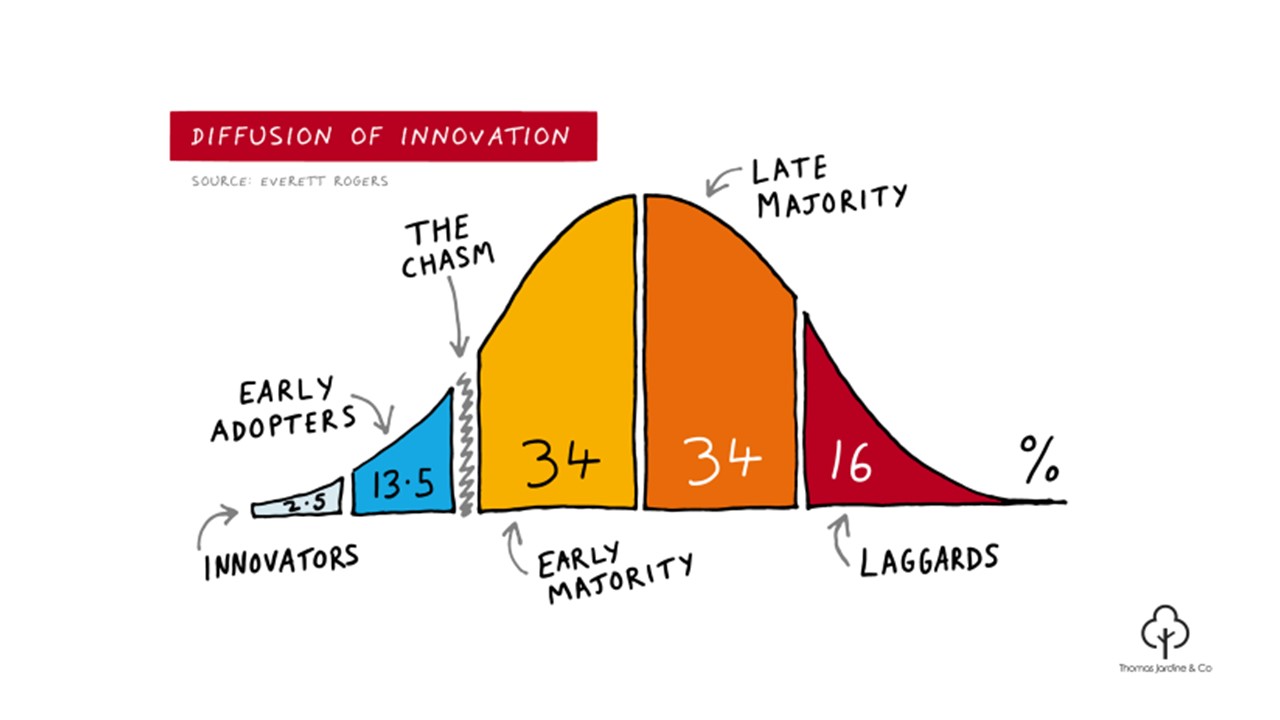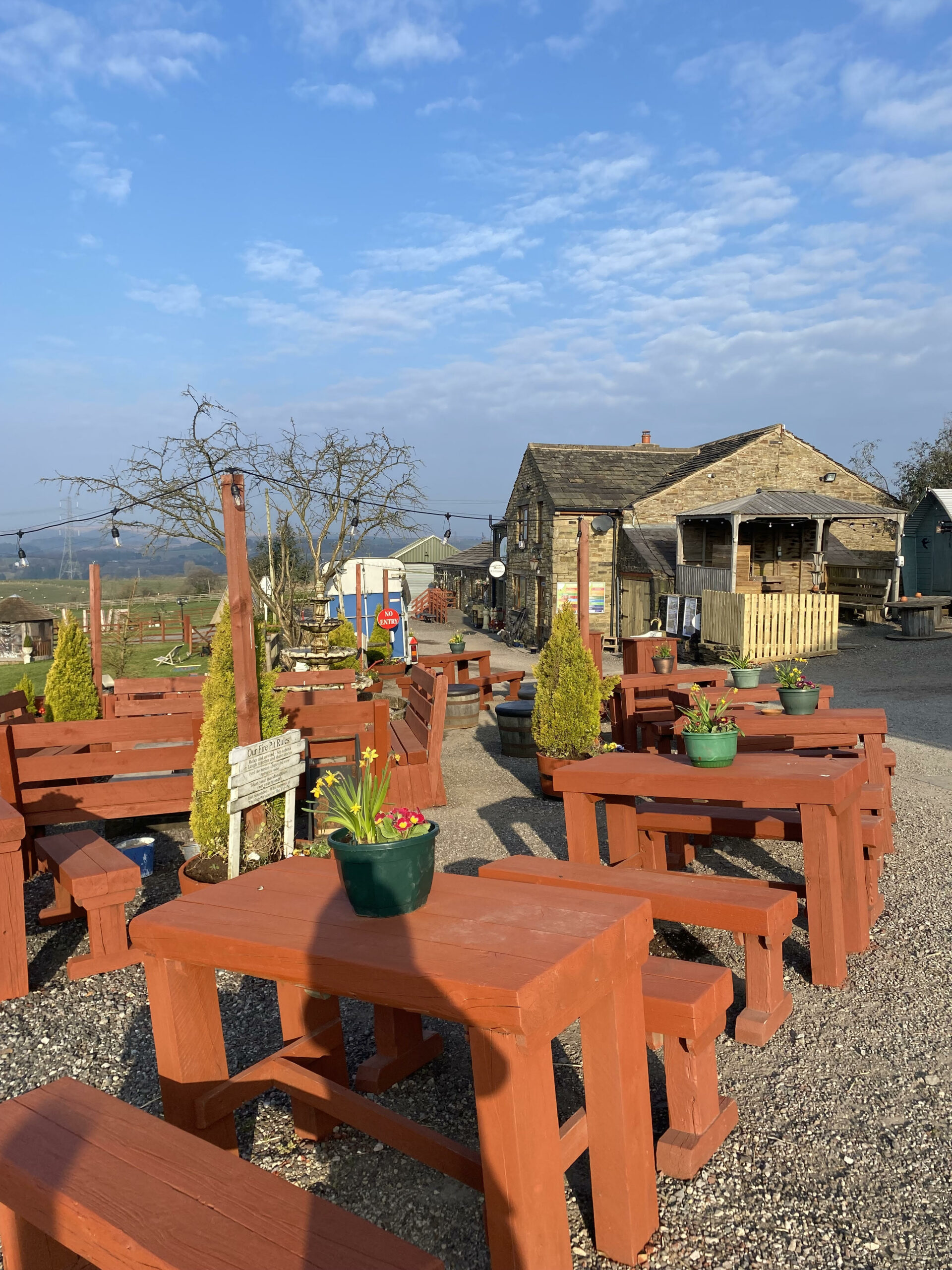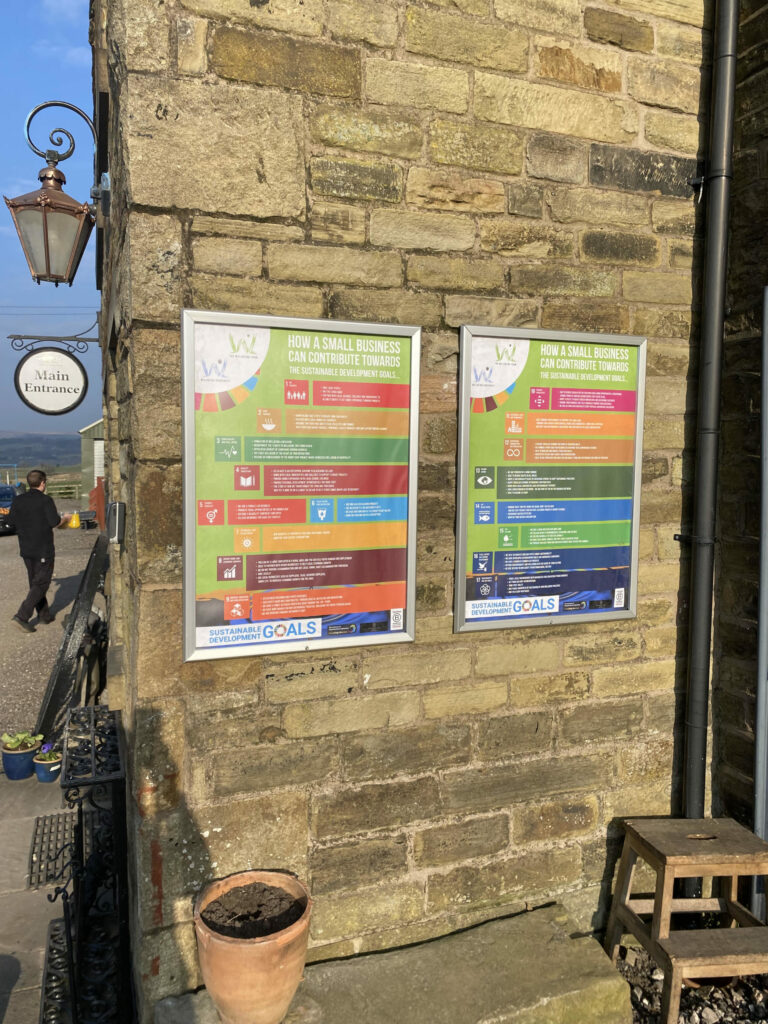Lancaster University Creating change in the food ecosystem
You may have noticed that the food ecosystem is coming to the top of many agendas. Government and business both recognize the need for change. The blunt instrument of legislation can create change. But changes in legislation often have unforeseen consequences. Change in networks like the food ecosystem works better if it is driven by people within the system.
2.5% of the population are natural innovators and always open to change. Everett Rogers well accepted model shows once you combine the innovators with early adopters (the 13.5% of the group willing to embrace change) you have a chance of driving innovation forward. So for change to happen you start with 16% of any group.
Finding our 16%

We are supporting Lancaster University as they drive change in the food ecosystem
Simon Sinek brilliantly explains how to make change happen based on Everett Rogers model. His 5 minute YouTube is well worth a watch.
Once we have our innovators on board we will start to spread the word across the ecosystem.
The big step will then be gaining the early majority, but that doesn’t happen until we have the 16%…one step at a time.
SMEs collectively make up 96% of the food ecosystem. By working with the most proactive SMEs in the Northwest Lancaster aims to create a movement that will create change in the food ecosystem.
Practicalities of change
We are now rolling out the ECOi Innovation catalyst which was successfully piloted in Cumbria in 2021. Jacqui from Thomas Jardine & Co is the lead facilitator for this Lancaster University project working closely with Nicola Roberts their project manager.
Jacqui leads the ‘collaboratories’ . Enabling the task forces to drive the change agenda. Lancaster University supports these groups with a multitude of resources from academics to engagement fellows to innovation and ecosystem expertise.
The great joy is working with businesses who are giving their time to become part of the task forces who are driving the first step of change.
Lancaster, llamas and change
 The second “collaboratory” of the Lancashire group was held at the end of March and recruitment has already started for Merseyside. This was hosted at the brilliant Wellbeing Farm a B Corp business just outside of Bolton. The Lancashire task force: Ian Steel, Lee Sanderson, Chris Dew, Celia Gaze, Adrian Moeckell and Raphael Ogunrinde have now set two main Net Zero objectives to look at. These are tackling ‘waste in food & drink’ and ‘packaging & transport’.
The second “collaboratory” of the Lancashire group was held at the end of March and recruitment has already started for Merseyside. This was hosted at the brilliant Wellbeing Farm a B Corp business just outside of Bolton. The Lancashire task force: Ian Steel, Lee Sanderson, Chris Dew, Celia Gaze, Adrian Moeckell and Raphael Ogunrinde have now set two main Net Zero objectives to look at. These are tackling ‘waste in food & drink’ and ‘packaging & transport’.
We know, creating change is challenging but ultimately rewarding. We are looking forward to see how this will roll out across the North West. Call us if you want to know more or join the Merseyside task force.
